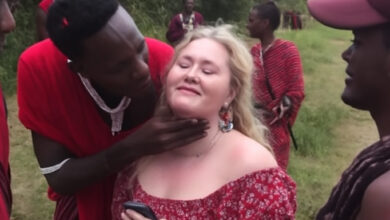Neighbours’ Nicolette Stone to find a clue in Chelsea Murphy mystery
Neighbours’ Nicolette Stone plays detective on behalf of Cara Varga-Murphy next week.
Nicolette takes the lead in trying to find out what happened to Cara’s sister Chelsea after she was spotted at the airport last year.
Viewers have recently seen Cara choose Nicolette as an unlikely confidante despite their past tensions.
Cara told Nicolette about her recent encounter with Chelsea at the airport, where her sibling was heavily pregnant and needed help.

Related: Best streaming services
Although Cara turned her back on Chelsea at the time – feeling wary after her past misdeeds – she now regrets not being more understanding and wants to find her.
Much to Cara’s relief, Nicolette agreed to keep her secret and help with the search.
Next week’s episodes see Cara get going on her mission, as she meets up with her cousin Maddy and brings Nicolette along for moral support.
Nicolette is surprised to strike up a romantic spark with Maddy. While Cara heads off to enjoy a Valentine’s Day celebration with her wife Remi, Nicolette seduces Maddy and hopes to get some crucial information in the process.

Related: Neighbours to update fans on Sebastian Metcalfe after show exit
After spending the night with Maddy, loved-up Nicolette finds a clue – one of Chelsea’s perfume bottles alongside a thank-you note.
Nicolette passes this information onto Cara, who takes back control by confronting her cousin.
Maddy admits to Cara that she helped Chelsea to give birth a few weeks ago, but Chelsea moved on afterwards and hasn’t disclosed her location.
Still feeling guilty, Cara asks Maddy to pass on her genuine apologies to Chelsea when she next sees her.
Could this olive branch bring Chelsea back to Erinsborough to cause more chaos?
Neighbours airs these scenes on Monday, February 17.
Neighbours releases new episodes from Mondays to Thursdays for free on Amazon Freevee and Prime Video in the UK and US. In Australia, the show airs from Mondays to Thursdays at 4pm on Channel 10, with a 6.30pm repeat screening on 10 Peach Comedy.




